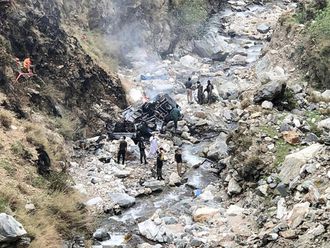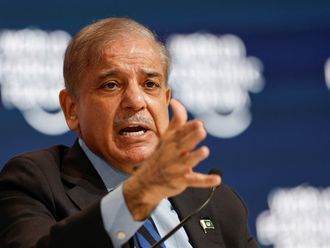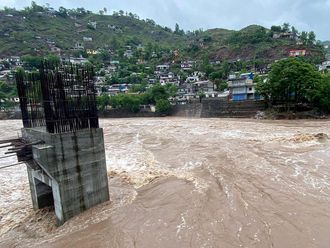Islamabad: Officials on Tuesday released data which shows that more than 30,000 Pakistani engineers and workers have been employed for the China-Pakistan Economic Corridor (CPEC) project.
Allegations that only Chinese nationals have been hired by Chinese companies to work on CPEC projects are devoid of truth, officials said.
According to the data of Planning Commission, around 8,000 Chinese are working on these projects.
The average strength of Chinese workers has never crossed above 25 per cent of the total employees, they said.
It is estimated that the employment opportunities for local youth will increase with implementation of CPEC’s mega projects in the medium to long term.
The International Labour Organisation (ILO) has estimated that CPEC will support the creation of around 400,000 jobs, while the Applied Economics Research Centre (AERC) estimated that China-Pakistan Economic Corridor (CPEC) is expected to create over 700,000 direct jobs between 2015 and 2030 and add 2 to 2.5 points to the annual economic growth rate of the country.
The estimates of Planning Commission show that the figure may go much higher as CPEC would generate around 800,000 jobs over the period of next 15 years.
Presently, the mega energy projects under CPEC portfolio have contributed the majority of jobs, with 16,000 Pakistanis hired as laborer and engineers.
Port Qasim Coal Power project is the top one which created job opportunities for 5,000 Pakistanis.
Sahiwal Coal Power Plant Project and Zonergy Solar Power Project stand second in list with 3,000 jobs each.
“Around 300 to 500 engineers are working on these energy projects which would surely help in transfer of knowledge in these sectors, thus helping the country to have its own trained human resource base,” officials said.
The implementation of two more projects in the energy sector — Sukki Kinari and Karot — is expected to generate around 6,000 jobs for Pakistani engineers and workers.
“A huge number of Pakistani civil and electrical engineers could grab this opportunity where hydropower projects are under execution,” officials said.
Besides the energy portfolio, CPEC Transport Infrastructure Sector stands second in creating around 13,000 jobs for locals.
The data shows 9,800 Pakistanis are working on the Peshawar-Karachi Motorway (Multan Sukkur Section), the biggest infrastructure project under CPEC.
The data further shows that KKH Phase II Havelian provided jobs to 2,071 locals, Orange Line Metro Lahore created employment for 956 people and Fiber Optic project created 580 posts for Pakistanis.
Development of Free zone project at Gwadar has created 404 direct jobs with additional 2,000 indirect employment. It is estimated that this project would create thousands of job opportunities for locals; soon it is made fully functional with establishment of different industries here.
The figures could grow significantly with more infrastructure projects expected to begin this year. Construction work on ML-1 project of Pakistan Railway, Gwadar Airport, Eastbay Expressway at Gwadar and other road projects are starting this as framework agreements of these projects have been signed by both side during One Built One Road Summit at China this month.
“These projects could further create around 10,000 to 15,000 direct jobs this year,” officials estimated.
They said that facts and figure clearly indicated that more than 75 percent Pakistanis are employed on CPEC projects, a fact which is contrary to the propaganda being spread by anti CPEC forces.
“All the companies try its level best to look for local engineers and laborers, fulfilling the social responsibility,” said officials.
In addition, CPEC projects being implemented through Public Sector Development Program (PSDP), particularly Hakla-Dera Ismail Khan Motorway Project has also generated thousands of jobs for Pakistani workers.
Besides, such a huge direct employment, the CPEC projects which are in construction phase have created thousands of indirect jobs and brought a boom for construction industry as steel and cement manufacturers are fully engaged in multiplying their production.
“This is a start. Thousands of jobs in construction phase would be created specifically for the locals” said officials, saying that the industrial cooperation phase to be started soon, would be a real game changer.
Relocation of Chinese industries could create hundred thousands of jobs for Pakistan skilled and non-skilled workers.












